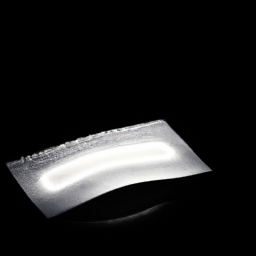Are you curious about the potential effects of teeth whitening strips on your oral health? Many people are eager to achieve a brighter smile, but worry about the safety of these popular whitening products. In this article, we will explore the question of whether teeth whitening strips are harmful to your oral health and provide you with valuable information to help you make an informed decision about achieving a dazzling, white smile.
Introduction
Welcome to the comprehensive guide on teeth whitening strips! If you’ve ever dreamed of having a bright, radiant smile, you’re not alone. Teeth whitening strips have become increasingly popular due to their convenience and affordability. In this article, we will explore the effectiveness of teeth whitening strips, their chemical composition, as well as potential side effects. So, grab a cup of tea and let’s dive into the world of teeth whitening!
Overview of Teeth Whitening Strips
Teeth whitening strips are a widely accessible at-home teeth whitening solution that come in the form of thin, flexible plastic strips. These strips are coated with a whitening gel containing peroxide, which is the main ingredient responsible for the whitening effect. To use them, you simply apply the strips to your teeth, ensuring they adhere properly, and leave them for the specified duration. Over time, the peroxide in the gel can help remove surface stains and lighten the shade of your teeth, giving you a brighter smile.
Effectiveness of Teeth Whitening Strips
Teeth whitening strips have gained popularity due to their effectiveness in improving the appearance of teeth. While the results may vary depending on individual factors, such as the severity of the stains and the frequency of use, many people have reported positive outcomes. With consistent use over the recommended period, teeth whitening strips can help you achieve noticeable results, leaving you with a smile that you’ll be proud to show off.
Chemical Composition of Teeth Whitening Strips
Teeth whitening strips typically contain peroxide-based whitening agents, such as hydrogen peroxide or carbamide peroxide. These chemicals work by breaking down the molecules that cause discoloration on your teeth. Hydrogen peroxide is more commonly found in over-the-counter whitening strips, while carbamide peroxide is frequently used in professional-grade products. It’s important to note that while these chemicals can be effective in removing stains, they should be used according to the instructions to avoid potential side effects.
Potential Side Effects of Teeth Whitening Strips
While teeth whitening strips are generally safe to use when used correctly, there are potential side effects that you should be aware of. These side effects are typically temporary and can be minimized by following the recommended guidelines. Let’s explore some of the common side effects associated with teeth whitening strips.
Tooth Sensitivity
One of the most common side effects of teeth whitening strips is tooth sensitivity. This can occur when the peroxide in the whitening gel comes into contact with the nerves in your teeth. You may experience a temporary increase in tooth sensitivity, causing discomfort or even pain when consuming hot or cold foods and beverages. However, this sensitivity usually subsides once you stop using the strips, and there are desensitizing toothpaste and gels available to alleviate the discomfort.
Gum Irritation
Another potential side effect of using teeth whitening strips is gum irritation. The whitening gel may come into contact with your gums, causing redness, swelling, or even mild irritation. To prevent this, it’s important to carefully apply the strips and avoid getting the gel on your gums. If you do experience gum irritation, it’s advisable to discontinue use and consult with your dentist for further guidance.
Enamel Damage
Excessive use or misuse of teeth whitening strips can lead to enamel damage. Enamel is the protective outer layer of your teeth, and when it wears down, it can expose the sensitive dentin layer underneath, increasing the risk of tooth decay and sensitivity. It’s crucial to follow the instructions on the packaging and not exceed the recommended usage time. Using teeth whitening strips more often or for longer durations than advised can potentially weaken your tooth enamel.
Overuse and Misuse
It’s essential to remember that more is not always better when it comes to teeth whitening strips. Overusing or misusing these products can lead to adverse effects. Using the strips too frequently or for longer periods than recommended may not result in faster whitening but can cause more harm to your oral health. Always follow the instructions provided with the product, and if you have any concerns or questions, consult your dentist.
Conclusion
Teeth whitening strips can be an effective and accessible option for achieving a brighter smile in the comfort of your own home. When used correctly, they can help lighten the shade of your teeth and remove surface stains, boosting your confidence. However, it’s important to be aware of the potential side effects, such as tooth sensitivity, gum irritation, and enamel damage. By following the instructions and not overusing the strips, you can minimize the risk of experiencing these side effects. Remember, your dental health should always be a priority, so if you have any concerns or questions, don’t hesitate to consult with your dentist. Here’s to a dazzling smile and a healthy mouth!
